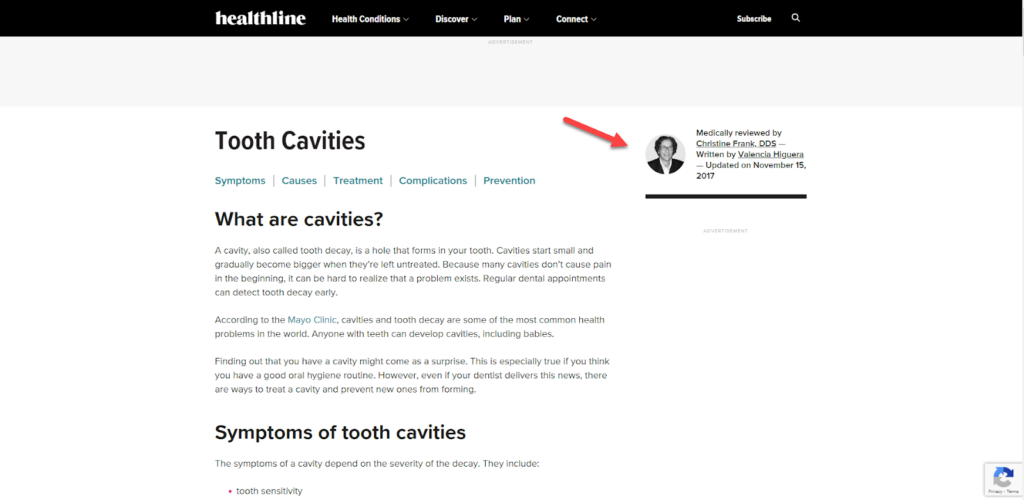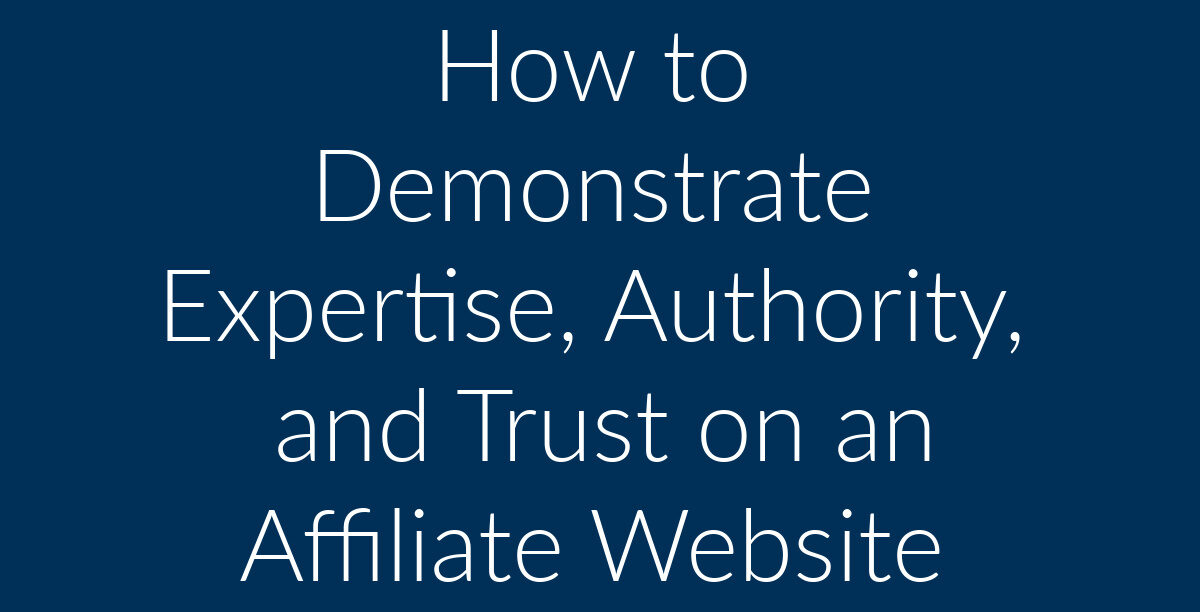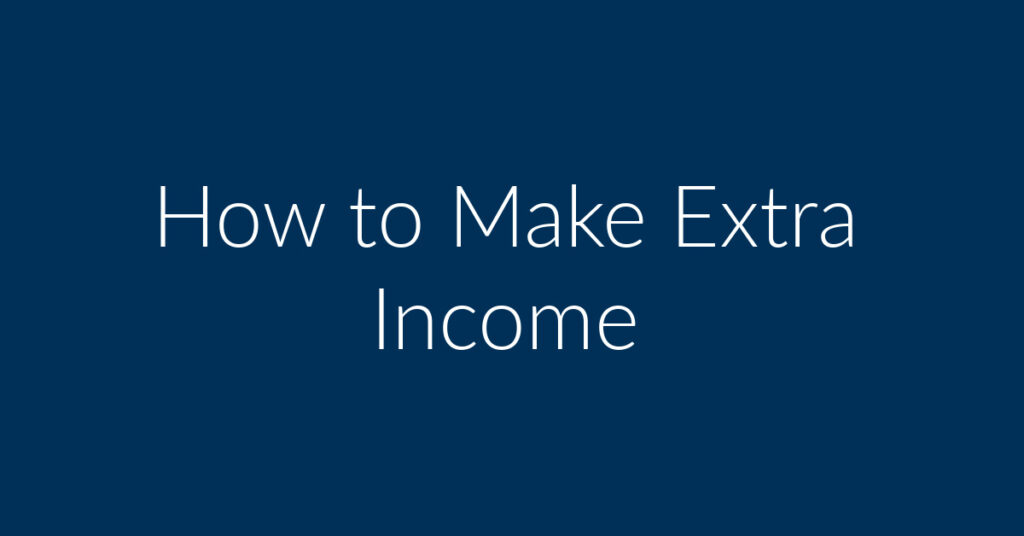In 2019 Google released a statement saying that one of the considerations that they give when evaluating what page to rank for a given keyword is the expertise, authority, and trustworthiness behind the content on a page.
Although a lot has been made about what Google means by expertise, authority and trustworthiness (from now on we will use E-A-T as shorthand for this), the long and short of it is that Google wants to make sure that it is ranking truthful content from credible sources.
Google’s shifting focus to the credibility of people behind a website has had serious ramifications for affiliate marketers who do not have professional experience in their niche.
The search engine wants to see evidence that you are a source of authority in your niche and that your website contains information that is at best truthful and, in the case where there is no objective “truth” to the matter, well researched.
Here are the ways that you can demonstrate expertise, authority and trustworthiness on an affiliate website.
Showcase the people behind your website and their relevant qualifications
Google wants to rank content that is written by an industry expert. Therefore it will give preference to posts where it can both identify who has written it and see that they are well qualified on the written-about topic.
You should therefore showcase your affiliate site’s writers on your website, especially if they have specific expertise in your niche. Although having writers with relevant professional qualifications and experience is ideal, just having team members who have worked as freelance writers in your niche for a long period of time is better than nothing and should be mentioned on your website.
The places to mention your writers and their credentials are:
- Your “about us” page: This should have in-depth profiles of all of your writers (a few paragraphs for each) and list all their relevant expertise and experience.
- On each article: Each article should have the name of the writer who wrote it along with a short bio of their relevant expertise
- On your site’s Linkedin: Your site should have a Linkedin set up with profiles of all your writers. This again suggests that you have professional expertise within your business.
For sites in niches that require professionally qualified people to create credible content, but who cannot afford such writers, you should at least have a qualified person to verify the content and state that this is the case on your site. Healthline does an excellent job of this having a “written by” and “verified by” author box for every article. As a result they can rank for a huge number of medical keywords despite not being run by medical professionals.

Make sure that your content is as factually accurate as possible
To cover the “trustworthiness” aspect of E-A-T, you need to make sure that the content on your website is as factually accurate as possible.
Although it is not completely clear how Google measures factual accuracy, the current best practices based on what we do know about the search engine is that information in your articles should cohere with whatever the highest published authority is on the topic.
Of course this “highest published authority” varies depending on the topic that you are writing about. Here are a few examples so you can get an idea of the types of sources that you want your content to cohere with.
- If you are writing about health or science then you want to make sure that your claims cohere with the latest scientific papers. Have a look at what is published by academic institutions (you can find this by searching [keyword] inurl:.edu) and make sure that your claims do not contradict what is being said here.
- If you are writing about business, finance or anything to do with money then you want your content to cohere with the big, reputable publications on these topics (Financial Times and Wall Street Journal for example) or with government publications. Again you can search [keyword] inurl:.gov to find these.
- If you are writing about any specific product then the objective information about the product should match what is written by the products manufacturer.
To make sure that your writing coheres with the highest published authority on the topic then you should verify and cite these sources in your writing where possible.
There are of course many topics where there is no objective truth to the matter. For these cases trustworthiness comes from a combination of your writers’ credibility on a topic and from how your inferences are based in facts that cohere with the highest published authority on a topic. This again demonstrates why having writers with proper credentials on your affiliate site is becoming more important in achieving the rankings that you want.
If you have an older affiliate site then you will want to regularly audit your content to make sure that it coheres with the latest research and understanding on its topic. This is particularly important if your site is in a rapidly changing niche such as technology or finance.
Get links from the right places
Getting links from websites that require professional expertise as a barrier to entry to be featured on them will lift your level of perceived credibility by Google. Again, what these types of sites actually are varies from niche to niche, but they commonly include:
- Professional associations and business listings: These generally require either some sort of professional accreditation or business registration to get listed and therefore lift you up as a more established entity than simply an affiliate site that someone has knocked up.
- Websites of established businesses in your niche: Established businesses, particularly in highly professionalized industries such as law, financial services and medicine, tend to only link out to highly reputable sources. Therefore if you can get links from these types of businesses to your site then this should do wonders for your E-A-T.
- Top tier authority sites in your niche: Although platforms like HARO have meant that smaller affiliate sites can still get links from large publications, for most niches getting in the biggest publications specific to your niche still requires you to be an industry thought leader. Therefore if you get links from sites that are both highly authoritative and highly relative then this will help with your E-A-T.
In short, getting links from websites that tend to only link out to established businesses in your niche will raise your website’s E-A-T. These links often cannot be built at scale, so therefore you may want to bulk out your link building efforts with easier-to-get links to help you rank.
The links that boost your E-A-T often require more of a sniper approach, so they should be separated into a dedicated campaign to run in parallel to your standard link building strategy.
Create the “social signals” of a brick and mortar business
All things being equal, Google will view a brick and mortar business as more trustworthy than a pure publisher in a given industry. This makes sense when you consider that the former business model generally requires greater overheads to get started, and therefore websites for these types of businesses have more “skin in the game” when it comes to making sure that their information is trustworthy
Since Google cannot categorically tell which websites are pure publishers and which are brick and mortar businesses, Publishers can therefore legitimize their website, and increase their E-A-T, by engineering the social signals that would be expected of a traditional business in their industry.
These social signals include:
- A Google My Business listing: Having a Google My Business listing will set you apart from most other small publishers and will add an extra layer of legitimacy to your business. Even if you do not have a physical premises you can still set up a Google My Business either at your own home or at a co-working space that offers a virtual mailbox. Once you have set up your Google My Business listing you may want to add some call to actions to your informational content to leave you a positive review as this also matches the social signals of a brick and mortar business.
- Social media pages: Although most smaller affiliate sites will be unlikely to drive converting traffic from social media, having such pages built and having a small following for each one will demonstrate that the content you publish is trustworthy enough to merit such a following.
- Directory listings: Again this is something that a lot of affiliate sites do not bother with. This means that if you are competing for an affiliate keyword where professional expertise is a key ranking factor these listings could give you the edge.
Conclusion: Affiliate sites need to professionalize to improve their E-A-T
A big part of Google’s increased emphasis on the expertise, authoritativeness and trustworthiness of websites is to crackdown on marketers creating content on topics that they have no real right to be writing about.
Affiliate sites therefore need to have professional clout behind them, and this needs to be showcased both on your website and through its wider digital footprint.
For affiliate marketers who have ambitions of turning their website into a leading authority in their niche, this building of true credibility should be part of their strategy anyway. However, affiliate marketers who are trying to build a portfolio of smaller websites now need to up their game when it comes to the professionalization of their sites.


